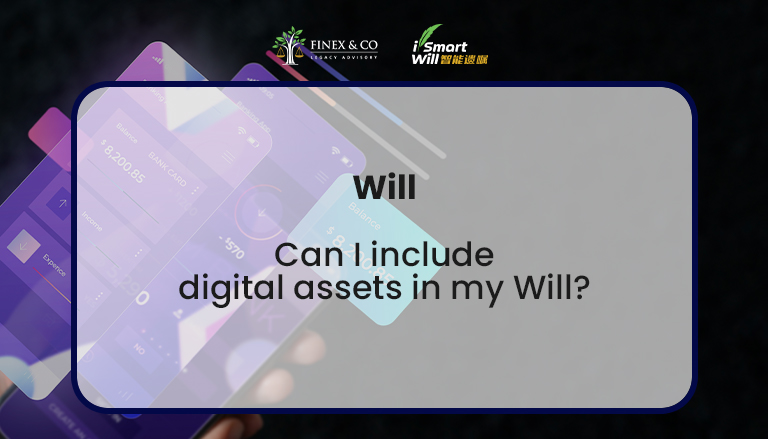“I’m Mr. Wong, 55 years old, and I have been invested in the world of cryptocurrency for some time now. Over the years, I’ve accumulated a significant amount of digital assets and firmly believe in their long-term value. My concern is how to ensure these assets are properly passed down to my son, Adam, after I’m gone. I’m uncertain about the best approach and whether including them in my will is the right course of action.”
Answer:
To better address Mr. Wong’s concern, let’s first define what digital assets are. Digital assets include any form of online accounts such as cryptocurrency wallets, e-wallets, social media profiles, email accounts, and various other internet-based services. These assets exist solely in the digital space, making them quite different from traditional assets like bank accounts or real estate.
Unlike traditional bank accounts, which operate within a regulated and physical framework, digital assets exist entirely online. This distinction introduces unique challenges, particularly when considering inheritance. In Malaysia, passing on physical assets is typically straightforward—you draft and legalize a will, and your designated beneficiaries receive their share accordingly. However, the process for digital assets is less defined, requiring careful planning and consideration.
Challenges in Inheriting Digital Assets:
Inheriting digital assets, especially cryptocurrencies, presents a different set of complexities compared to traditional assets. Unlike bank accounts, which are governed by clear legal frameworks, digital assets often reside in a legal gray area. While some countries like the United States, Australia, and the UK are making strides in establishing laws around digital inheritance, the legal framework in regions like Malaysia remains less developed.
When dealing with digital assets, it’s crucial to understand that service providers often control access to these accounts after the account holder’s death, rather than the law. Digital assets can be broadly classified into financial and non-financial categories. Financial assets might include online trading platforms or e-wallets, while non-financial assets could hold sentimental value, such as photos stored on social media accounts or unpublished manuscripts kept in the cloud, which might still have financial significance.
Cryptocurrencies pose unique challenges in this regard. Unlike traditional financial assets connected to bank accounts, cryptocurrencies are decentralized, meaning there’s no central authority to turn to for access. This makes the planning process for passing on these assets even more critical.
Steps for Securing Cryptocurrency Inheritance:
Given the complexities involved, Mr. Wong can take several steps to ensure his cryptocurrency holdings are securely passed on to his son, Adam:
- Thoroughly Document Account Information: Mr. Wong should carefully record all login details for each of his cryptocurrency accounts. This should include clear, step-by-step instructions on how to access these accounts, especially if his son isn’t familiar with the intricacies of cryptocurrency.
- Appoint a Trusted Digital Facilitator: Mr. Wong should consider designating a trusted individual as a digital facilitator. This person’s role would be to help retrieve the digital assets, ensuring they’re accessible to the executor of the will. The facilitator should not be involved in the distribution of the assets but should focus on providing access.
- Create and Maintain a Digital Asset Memorandum: It’s advisable for Mr. Wong to create a separate document, often referred to as a digital asset memorandum, that lists all relevant passwords and access codes. This document should be securely stored, and the digital facilitator should be informed of its location. Regular updates to this memorandum are essential to ensure it remains current.
Conclusion:
In summary, while digital assets like cryptocurrencies present exciting opportunities, they also require thoughtful estate planning. By documenting account details, appointing a digital facilitator, and creating a digital asset memorandum, Mr. Wong can ensure that his son, Adam, will have access to these assets in the future. Consulting with an estate planning professional can further assist in navigating the complex world of digital inheritance, ensuring peace of mind for Mr. Wong and his family.
You may make an appointment with our legal advisor here:
https://calendly.com/finex-and-co-legacy-advisory/tea-talk-with-legal-expert
我可以把数字资产写入遗嘱里吗?
“我是Mr. Wong,今年 55 岁,投资加密货币世界已经有一段时间了。多年来,我积累了大量数字资产,并坚信它们的长期价值。我担心的是,在我去世后,如何确保将这些资产妥善地传给我的儿子Adam。我不确定最佳方法,也不确定将它们纳入遗嘱是否是正确的做法“。
理清数字资产的概念:
为了更好地回答Mr. Wong的问题,我觉得首先需要定义什么是数字资产。数字资产包括任何形式的在线账户,如加密货币钱包、电子钱包、社交媒体资料、电子邮件账户以及其他各种基于互联网的服务。这些资产只存在于数字空间,因此与银行账户或房地产等传统资产截然不同。
传统银行账户在受监管的实体框架内运行,而数字资产则完全存在于网上。这种区别带来了独特的挑战,特别是在继承方面。在马来西亚,传承传统的资产通常是直接的——你只需制定遗嘱,你指定的受益人即可按遗嘱继承资产。然而,数字资产的继承过程却不那么明确,需要仔细规划和考虑。
继承数字资产的挑战:
与传统资产相比,继承数字资产,尤其是加密货币,会遇到一系列不同的复杂问题。与受明确法律框架管辖的银行账户不同,数字资产往往处于法律灰色地带。虽然美国、澳大利亚和英国等一些国家在制定数字遗产相关法律方面取得了长足进步,但马来西亚等地区的法律框架仍不够完善。
在处理数字资产时,这些服务提供商通常能拥有账户持有人的访问权限,而不是法律。数字资产大致可分为金融类和非金融类。金融资产可能包括在线交易平台或电子钱包,而非金融资产可能具有情感价值,如存储在社交媒体账户上的照片或保存在云端的未出版手稿,这些资产可能仍具有金融意义。
加密货币在这方面带来了独特的挑战。与连接到银行账户的传统金融资产不同,加密货币是去中心化的,这意味着没有中央机构可以访问。这使得这些资产的传承规划过程变得更加重要。
为加密货币继承做好准备:
鉴于上述复杂性,Mr. Wong可以采取以下步骤,确保他的加密货币资产能够顺利传给他的儿子Adam:
- 详细记录账户信息: Mr. Wong应仔细记录每个加密货币账户的登录信息,包括详细的操作步骤,特别是如果他的儿子对加密货币平台不熟悉时。
- 委任可信赖的数字资产管理员: Mr. Wong应考虑委任一位值得信赖的数字资产管理员,数字资产管理员的角色是帮助检索数字资产,确保遗嘱执行人可以访问这些资产然后进行分配。数字资产管理员不应参与资产的分配,而是专注于确保资产能有访问权限。
- 准备一份数字资产备忘录: Mr. Wong应准备一份数字资产备忘录,列出所有相关的密码和访问代码。这份备忘录应安全保存,并确保数字资产管理员知道存放的位置。Mr. Wong应定期更新该备忘录以保持其有效性。















